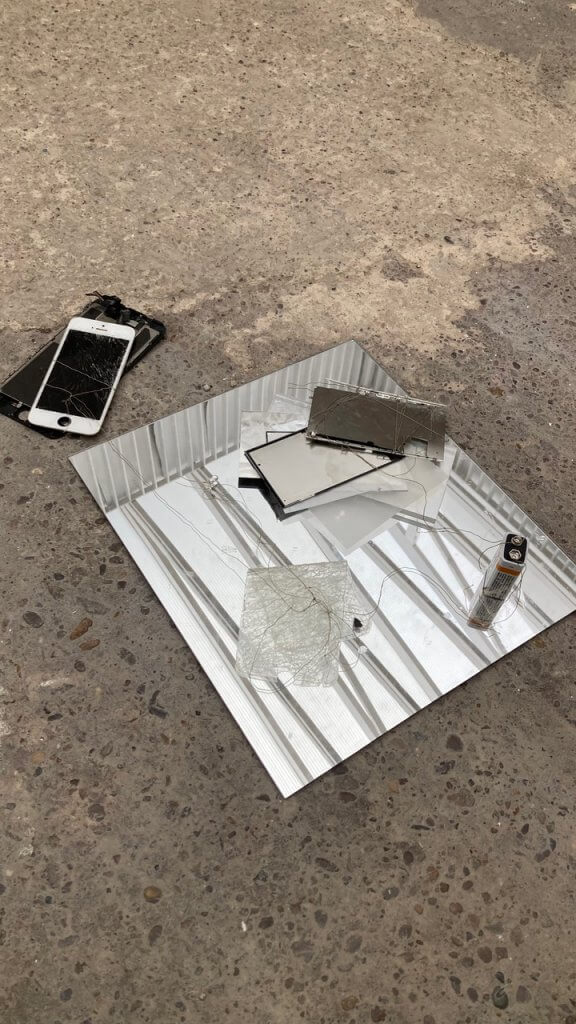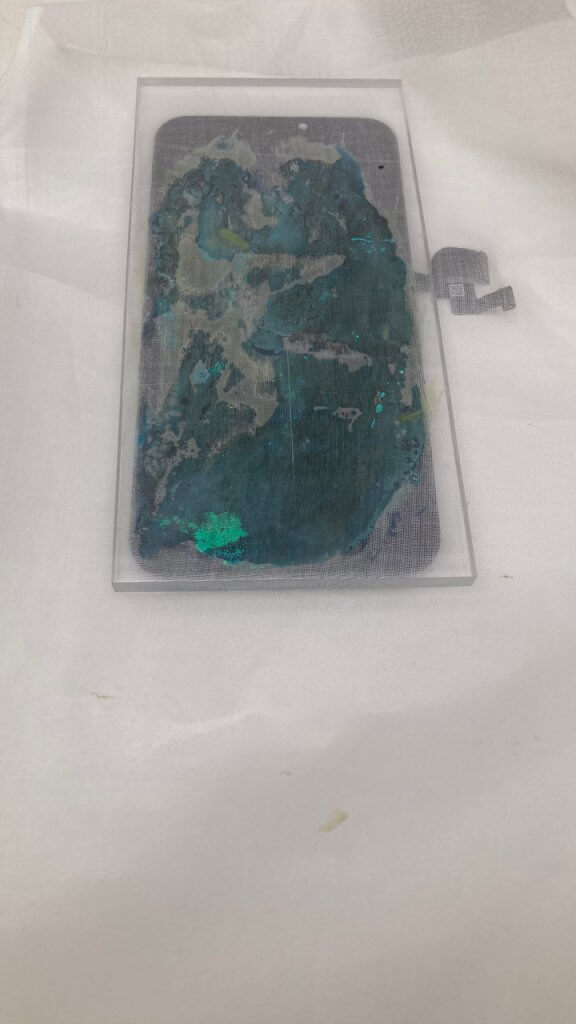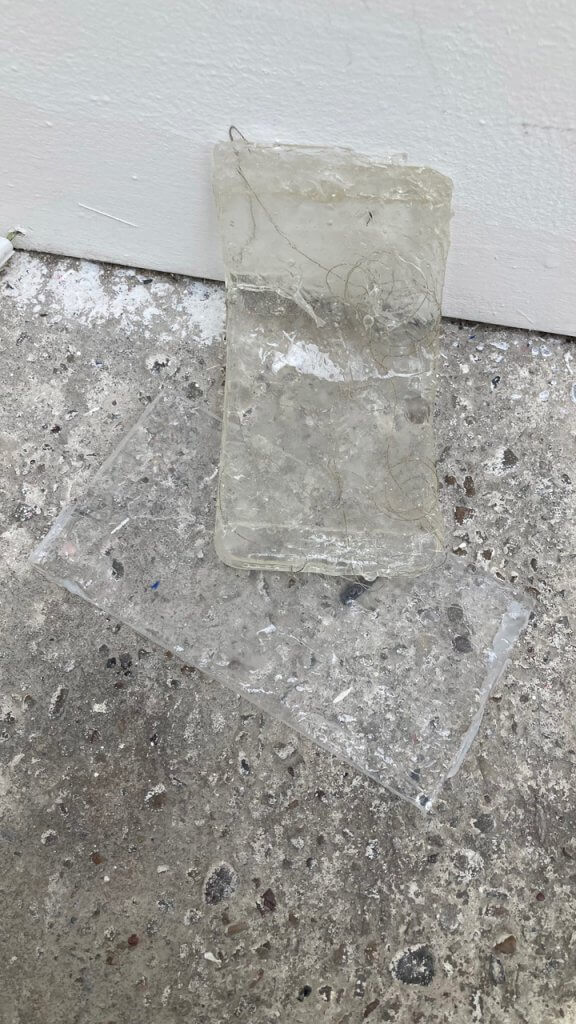The research regards the tactile human relationship with touchscreens. The practice focuses on an explorative material based approach where Touch is the interactive tool to explore technological materiality and the self.
Researcher: Marika Grasso
Funded by: Research England
Supervisory team: Eve Stirling, Daniella Petrelli and TC McCormack
The PhD research employs a material practice-based interdisciplinary approach interlacing Neuroscience, New Materialism, and the sense of Touch.
Recent news >> Marika Grasso awarded IWM Digital Humanism fellowship in Vienna
Fingers and hands stroke, tap, caress and interact with the touchscreen every day, although we simply feel sleek glass, there are many other layers and hidden matter behind it.
This research considers technological devices, such as broken smartphone touchscreens, through altering their matter for artistic purposes. The scope of the thesis is to question the tactile human relationship with the technological matter by structuring a personal art practice, founded upon a textile material approach. The research aims to expose the point of view of the touched matter, having a New Materialist approach that implies considering the technological matter as waste and its existence and slow deterioration beyond human existence.

I aim to go beyond the interaction, interface, and user experiences, to understand through the multimodal instrument of art practice, the compositions of the sleek surface perceived by the skin. Gestures and movements change the human skin while there is not much alteration of the technological material aside from the grease and dust left by the fingers. In terms of tactile interaction, the immutable surface is constant in a relationship in which time and the human are the variables. The research also includes a Neuroscientific perspective, with an investigation of the Motor hierarchies and our decision-making processes concerning the tactile interaction, and repetitive automatic finger movements on the glass screen.
Related News >> Re-Fashion Fare

The material exploration aims to tell the material narrative behind the digital spaces of the smartphone. Touch as a phenomenological instrument shaped a reflection on the touchscreen material durability against the ageing human flesh. While touchscreen matter is used or broken it records and collects the leftovers of ear, fingertips, checks, hand, and lips. Touch ultimately becomes a mode of awareness of the changing self through the gestures of interaction towards the immutable surface.

About the researcher
Marika is an artist and a PhD candidate at Lab4Living in Sheffield Hallam University. She previously studied Textiles at The Royal College of Art, and Fashion Design at Central Saint Martins. She took part in the online residency Transient curated by Lydia Griffith, and the artwork Beyond touch-screens was exhibited at the CHI Interactive experience at the Free University of Bolzano. She completed an online training course by University of Chicago: Neurobiology of Everyday life. In 2022 she took part in the online residency @Orbit and participated in projection mapping installation for the Sheffield Doc/Fest.
 to top
to top
